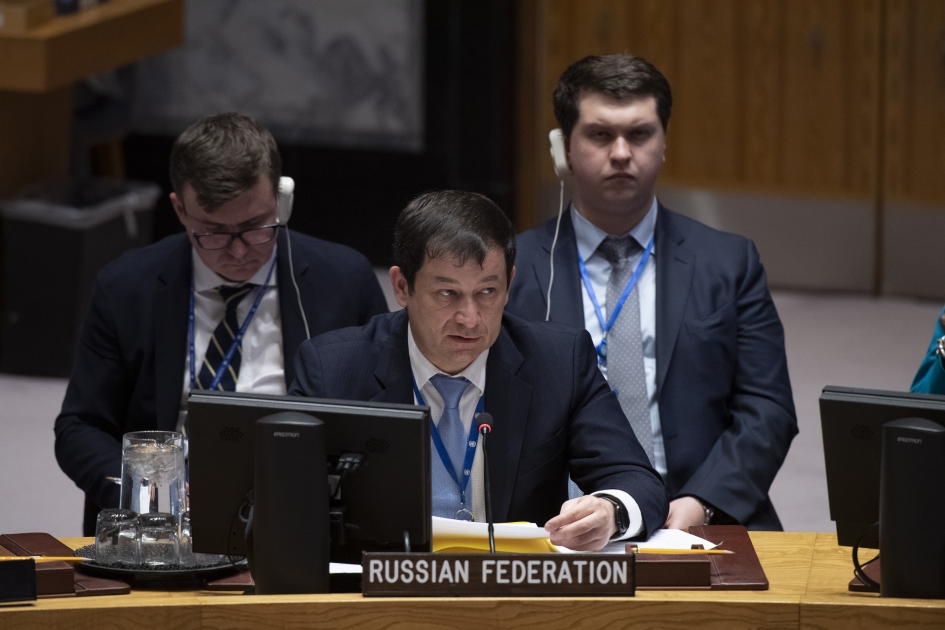Statement by First Deputy Permanent Representative Dmitry Polyanskiy at a UN Security Council meeting on Haiti
Mr. President,
We are grateful to the Special Representative of the Secretary General, Ms. Helen La Lime, for her briefing on the situation in the country and the work of the UN Integrated Office in Haiti.
We agree with the assessments of the situation in Haiti, that is really challenging, contained in the first report on the work of the Special Political Commission.
The drawdown of the United Nations peacekeeping presence coincided with an upsurge in civilian activity. Disagreements between the branches of Government impeded the functioning of the Government and Parliament, and led to the delay in holding the elections. The lack of efficient leadership affects all spheres, from security to business and the humanitarian needs of the population.
We welcome various initiatives to establish direct public dialogue to overcome the crisis. We assume that only frank discussion of urgent problems and overcoming differences through taking into account the views of all parties can guarantee sustainable peace in any country. And Haiti is certainly no exception.
In that context, the Mission's work to assist Haitians in establishing dialogue is very important. We believe that this should remain a top priority for the United Nations. In such a challenging period for the country, it is necessary not to waste time and resources on tasks where progress will in any case depend on political stability in the country.
We took note of the report's evaluations of the Haitian National Police. This institution now bears a special responsibility – in search of mutual understanding, society must view police officers as real defenders. However, the inalienable right to peaceful assembly and freedom of expression must be exercised with unconditional respect for national legislation.
Mr. President,
The challenges Haiti faces are not unique. With the drawdown of the United Nations peacekeeping presence in the country, Haiti's political leadership and law enforcement agencies have not only gained greater independence from international assistance, but have also assumed full responsibility for the country's fate and the security of its citizens.
The state and society have entered a very important stage of development, where it will not be easier than before. Awareness of national responsibility inevitably leads to the rise in social activity as well.
At the same time, it is necessary to avoid simplistic conclusions about the "root causes" of what is happening. Real causes are unresolved pressing socio-economic problems, rather than political ambitions of opponents.
Unfortunately, Haiti is a clear example of how, in the heat of political struggle, the very foundations of public administration can be undermined. This should have a sobering effect on those who continue their business shattering the foundations of statehood in other Latin American countries putting at risk the entire continent.
We see no alternative to the negotiated settlement in the countries of the region, which have faced domestic political challenges, whether in Haiti or elsewhere. Double standards and interference in Latin American affairs are unacceptable.
Today, there is a need for responsible international assistance in Port-au-Prince in order to reduce public tensions and prevent Haiti from sliding into a full-fledged internal conflict. The task of finding a format and modalities for dialogue that are acceptable to all warring parties comes first. In that context, we welcome the efforts of international mediators, which are consistent with the priorities of BINUB. We will continue to contribute to ensuring that the work of the Security Council leads to a genuine normalization of the situation in Haiti and to consolidation of its sovereignty and self-sufficiency.
Thank you.
